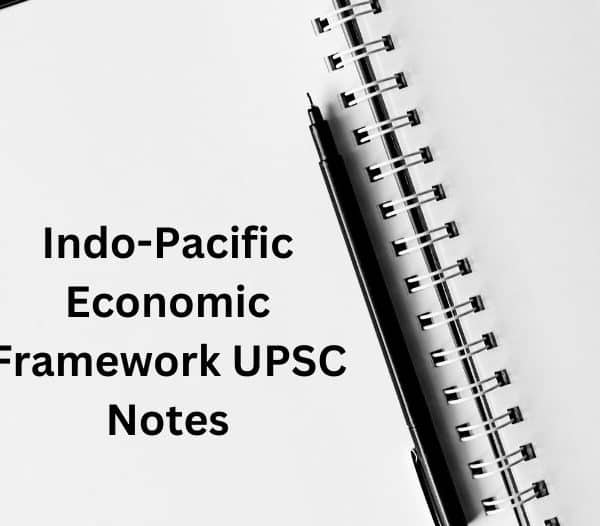In demand for an increased MSP in India, farmers all over the nation are showing protest thus leading to unrest in various parts of the country. Many times there have also been many complaints coming from farmers for not being able to sell their crops at MSP.
Now the question is what is MSP in agriculture? What does it mean? How minimum support price matters in Indian agriculture? If you are looking for this answer and want to know all about agriculture ordinance, minimum support price and APMC for the coming UPSC IAS exam, then you have come to the right place. Keep reading on to find all your answers.
What is MSP for Farmers?
MSP in agriculture directs the intervention of the Government of India that insure farm items against any sharp drop of agro prices. On the basis of the recommendation made by the Commission for Agricultural Costs and Prices aka CACP, every year, at the beginning of the farming season, the Government of India announces the minimum support prices for certain crops.
The idea behind MSP ordinance is to protect the farmer, producer in bumper production years against an excessive drop of price. MSP is a guaranteed minimum price for the production of the farmers from the Government.
In case of price drop due to bumper production, the government agencies purchase the entire quantity of agro products at the announced minimum support price.
Here’s all you need to know about new agriculture reform bill and facts about MSP
MSP Crops in India
Under the MSP ordinance, there are 22 MSP crops. 14 of those mandate crops are in the Kharif season, 2 commercial crops and 6 rabi crops. On the basis of the minimum price of rapeseed/ mustard and copra the MSPs if de-husked coconut and toris are fixed. Following is the list of corps under MSP India:
- Cereals (7) – jowar, paddy, maize, wheat, ragi barley and bajra.
- Pulses (5) – moong, gram, urad, arhar/tur and lentil.
- Oilseeds (8) – groundnut, toria, rapeseed/ mustard, soybean, sunflower seed, safflower seed, sesame and niger seed.
- Copra
- Raw cotton
- De-husked coconut
- Raw jute
- Sugarcane (Fair and remunerative price)
- Virginia flu cured (VFC) tobacco
Fixation of MSP Agriculture
Following are the factors that are taken under consideration before fixation of MSP in India on for agro products:
- Demand and supply.
- Production cost.
- Domestic and international price trends.
- Inter-crop price parity.
- Agro and non-agro trading terms.
- A minimum margin of fifty per cent over production cost.
Why MSP is Important to Farmers?
- For MSP farmers get a fair return. Consumers also get agro products at a reasonable price.
- This safeguards the agro-industry against the price fluctuation.
- Even in unfavourable situations, MSP ordinance ensures pre-decided minimum price to the farmers.
- Without MSP in India, many farmers would stop farming crops thus leading to a higher price hike.
Also Read : What is Section 144 in India? Things You Need to Know for UPSC IAS Exam
MSP 2020-2021
| Crop | MSP 2020-2021 (Rs/ quintal) |
| Paddy | Common- 1868
Grade ‘A’- 1888 |
| Jowar | Hybrid- 2620
Maldandi-2640 |
| Bajra | 2150 |
| Maize | 1850 |
| Ragi | 3295 |
| Arhar (Tur) | 6000 |
| Moong | 7196 |
| Urad | 6000 |
| Cotton | Medium Staple- 5515
Long Staple- 5825 |
| Groundnut in shell | 5275 |
| Sunflower seed | 5885 |
| Soybean | 3880 |
| Sesamum | 6855 |
| Niger Seed | 6695 |
| Wheat | 1925 |
| Barley | 1525 |
| Gram | 4875 |
| Masur (Lentil) | 4800 |
| Rapeseed & Mustard | 4425 |
| Safflower | 5215 |
| Toria | 3900 |
| Copra | Milling – 9960
Ball – 10300 |
| De-husked coconut | 2700 |
| Raw Jute | 3950 |
| Sugarcane | $285 |
What is APMC?
The state government of India established APMC or Agricultural Produce Market Committee to protect the farmers from exploitation by big corporate brands or retailers. Another agenda of this establishment was also to ensure that the farm to retail price does not become too high.
The model APMC Act, 2003 was created for contract forming; 20 states have amended their APMC Act though Punjab follows a different law for this purpose.
Each state under APMC has divided the state geographically for establishing different mandis/ markets at those places. The farmers in their regions, have to sell their agro products via auction where license holding traders buy their products.
Conclusion
MSP in agriculture is an important and probable topic for the coming UPSC IAS exam as recently, new agricultural bills have been passed by the Lok Sabha gearing up the issue of APMC and MSP. Hopefully, this article will help you get enough ideas about the minimum support price for agricultural items. Do let us know your thoughts about this topic by commenting in the box below.
Also Read : What is the New Agriculture Bill 2020? Check-out these Must-Know Facts about APMC






